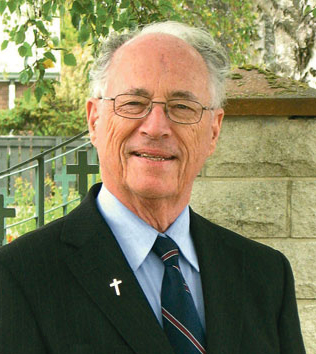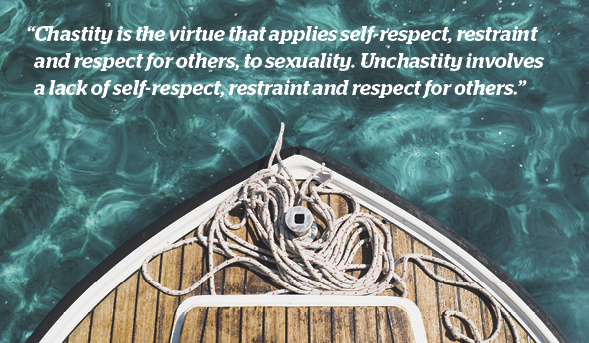
WelCom October 2021
An image has been occurring to me of boats that have become unmoored. They end up on the rocks, or colliding with one another. There are features of our Western world’s culture that seem to fit the image. Important aspects of our lives seem to have become disconnected from what gives them meaning. If this is true, it is hardly healthy. In my article ‘Unmoored’, published in WelCom in two parts, I offer six examples.
Part Two

4. Sexual activity unmoored from sexuality’s meaning.
I recently heard some young people say they felt it was wrong to send sexual imagery online, but they didn’t know why. They will not come any closer to knowing through ‘consent education’. ‘Consent education’ is right to teach the need to avoid activities that are not legal or consensual or safe. But that is as far as it can go because it in unconcerned with sexuality’s meaning – other than it being a source of pleasure. That kind of ‘education’ allows, if it doesn’t promote, the idea that anything goes provided it is legal, consensual and safe. But is it?
A more holistic education would allow young people to learn about virtue. Modesty is the virtue that protects chastity. Of course, if society has given away the virtue of chastity, then it won’t feel any need for modesty. Chastity is the virtue that applies self-respect, restraint and respect for others, to sexuality. Unchastity involves a lack of self-respect, restraint and respect for others. The Department of Internal Affairs’ statistics regarding the extent of attempts in New Zealand to access child sex sites, and the increasing demand for younger children, and more violent forms of abuse, show where we can go when the meaning of sexuality is ignored, or reduced to pleasure.
There have been strong, organised and determined cultural movements whose agenda has been to ‘liberate’ sexuality from all previous restraints. We look back incredulously to the 1960s through the 1990s when some activists described themselves as ‘victims’ of harsh laws aimed at preventing ‘man-boy love’; and children as ‘victims’ because harsh parents didn’t want them to have that kind of loving care! ‘Inter-generational sex’ and ‘man-boy love’ were euphemisms intended to promote the acceptability of what society calls pederasty. For some, the aim was to shed categories such as ‘heterosexual’ and ‘homosexual’ in favour of more fluid and non-binary language. Even though by the 1990s those movements had mostly lost their credibility, the underlying ideologies have a way of re-surfacing.
So sooner or later, we do need to come to the question: ‘what is sexuality’s meaning?’. What is its purpose? Yes, it is for pleasure. But so is unchastity. So, there must be some meaning beyond that. Honest reflection recognises two purposes that are entwined and come together uniquely in marriage: they are sexuality’s potential for deeply nurturing the love of two people, and in a way that is also designed to generate new life as the fruit of their love. And because new life needs to be protected and nurtured, the child’s parents need to be in a relationship that is stable, committed and faithful.
Whatever allowances we rightly make for people of various orientations or preferences (see below), ultimately it is marriage that can fulfil sexuality’s deepest meanings. Detached from marriage, sexual activities are detached from sexuality’s meaning.
5. Gender identity unmoored from sexual identity.

Gender identity is not a label that is put on us, by ourselves or by others. It is given by nature long before we start making our own decisions. But what about the tensions between biological reality and psychological/emotional reality that some people experience? We move closer to an answer when we allow both faith and the sciences to be part of our thinking: the world is a work in progress, and we are part of this evolving world. This means that none of us is a finished product. We are all at one stage or another of being unfinished.
We can be born with deficiencies, or incur disabilities, some of which last through life. In fact, we are never finished while death is still in front of us. When there is something that cannot be resolved or fulfilled within our present span of life, it helps to remember that our life was not something we had a right to in the first place; it is simply gift. And our present life is not the whole of it.
In that kind of world, personal development does not always take place at the same pace, or even follow the usual pattern. Those who are caught in any of the dilemmas resulting from different stages of, or lines of, development have a right to the same respect and unconditional love as everyone else. Still, as Professor Kathleen Stock, herself a lesbian, writing about ‘Why Reality Matters for Feminism’, reminds us, there are only two biological sexes and no amount of hormonal or surgical treatment can change that. She is aware that by seeking surgical or hormonal treatment to support gender change, people are implicitly acknowledging the link between gender identity and sexual identity.
But she is also aware, and critical of, the more recent claim that they should not need to; it should be enough simply to declare that you are male or female, regardless of biological reality. Is that where the separation of gender identity and sexual identity could take us?
If reality matters, then it matters to acknowledge that, both socially and biologically, male and female find a certain completion in each other, precisely by being each other’s ‘opposite’ – which is what the ancient Genesis story has been saying all along – through unmooring rights from responsibilities, ‘facts’ from truth, and politics from pursuit of the common good.
6. ‘Religion’ unmoored from ordinary life
Early in the Christian tradition, St Iraneus said the glory of God is human beings coming alive through seeing God in all that God has made and all that God is doing in human lives. We are being drawn to God through the experience of created beauty, goodness and truth. Popes St John Paul II and Benedict XVI have picked up Iraneus’ theme, emphasising that since human beings becoming fully alive is God’s agenda in creating and redeeming us, it is also ‘the route the Church must take’.
So, religion is not somehow running alongside our ordinary lives; it IS our ordinary lives being made extraordinary, being sanctified, graced – family life, civic life, industrial and commercial life, political life… Of course, this is unfinished work, and so it will be until God is ‘all in all’ (1 Cor. 15:28). In the meantime, people for whom life’s shortfalls create a sense of insecurity are the ones more likely to seek escape into ‘religion’ perceived as some kind of separate sphere, or construct built on to life, or, worse, a kind of bubble – even having its own separate language.
This perception of ‘religion’ being alongside ordinary life is the assumption of some bloggers, and it seems, even some bishops – in Britain, Ireland, France and USA – who resent government restrictions affecting church gatherings even during a pandemic. It is as if the sciences and good government don’t apply to ‘religion’s’ separate sphere. A concept of religion unmoored from the needs of the common good is unmoored from the ordinary processes of becoming more truly human and fully alive, which is what gives glory to God.
Conclusion
A culture in which so many aspects of life have become unmoored from what gives them meaning is a culture that is reductionist, superficial, utilitarian… The question is: within in that kind of culture, how well equipped can we be to deal with the epic issues of our time – those that degrade human life, human dignity, human rights and the planet itself?
Bishop Emeritus Peter Cullinane CNZM was the first Catholic bishop of the Diocese of Palmerston North. He was appointed as Bishop on 23 April 1980 and retired on 22 February 2012. Bishop Peter did theological studies in Rome and a Master of Theology at Otago University.
Part 1 of this article was published in WelCom | NauMai September 2021 and can be read online at: https://www.wn.catholic.org.nz/adw_welcom/the-dangers-of-being-unmoored/